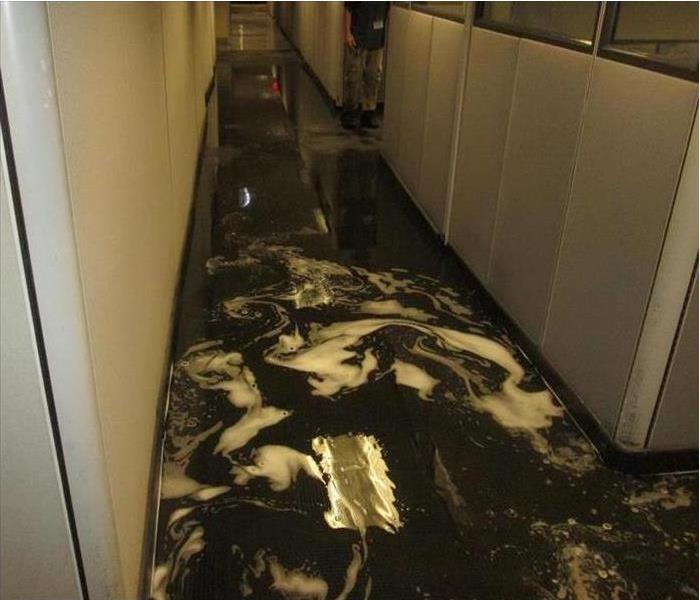SERVPRO: Your Experts in Commercial Water Damage
2/14/2017 (Permalink)
If you have recently become a victim of commercial water damage, you may be wondering what you can do to mitigate your damages. There is a critical period in which certain actions must be taken to preserve as much of your property as possible and to decrease any health risks when water damage has occurred in a commercial space. Preparing a Space for Water Damage Restoration before you enter your commercial space, or any flooded building, you will need to make sure the electrical power to the structure is shut off. You should also be aware that during a flooding event, small animals or reptiles tend to seek shelter inside of buildings. Be prepared to deal with the discovery of wild animals in your space. Protect yourself from entering any flooded building by wearing an organic vapor respirator. You can purchase these at any local paint and building supply stores. You also want to have rubber gloves, protective clothing, and eye protection. The first thing you should do is ventilate the affected areas by opening the windows and placing fans where possible. Unfortunately, there likely will be items that you need to throw away. Any items that are porous and have absorbed contaminated floodwater cannot be restored. If your commercial space has drywall, mattresses, pillows, box springs, particle board, carpets or carpet pads, these will need to be discarded if they have become saturated. However, there is good news: If you have clothing or household fabrics that can be machine-washed, you may be able to salvage them. Use your washing machine to clean these items with a 10-minute soak at minimum in hot water with detergent. The soap and normal wash should remove most of the contamination and any staining that is present. Be aware that your commercial space will need a thorough professional inspection, cleaning and possibly restructuring. Water damaged walls and installation must be removed and repaired, and pockets of saturation should be exposed for drying and sanitizing. Always remember that mold growth could take a few days to appear as it thrives in a moist environment with organic-type materials such as paper or particle board and in temperatures that range between 60 and 86 degrees Fahrenheit. Keep good airflow throughout the interior environment, and maintain moderate temperatures to decrease the risk of any mold growth. It is also important that you let your space dry out before any rebuilding occurs.






 24/7 Emergency Service
24/7 Emergency Service